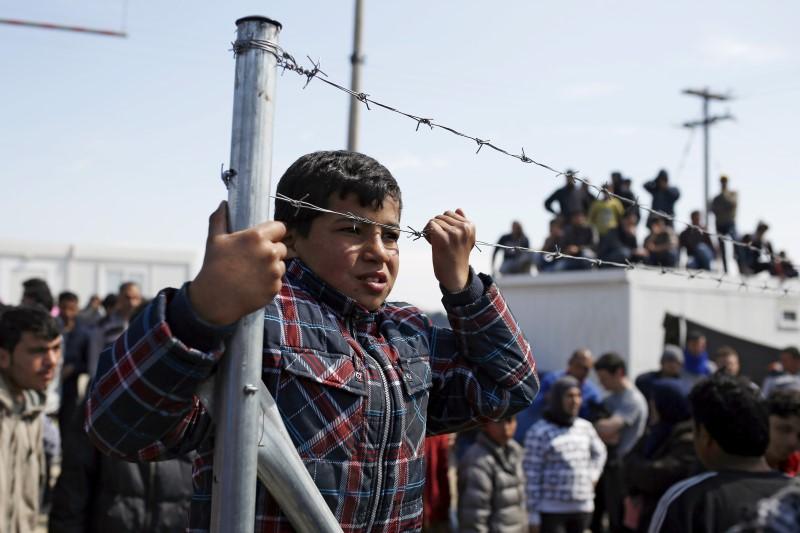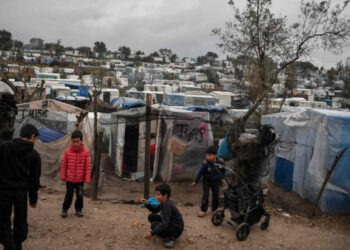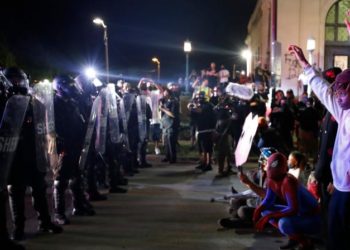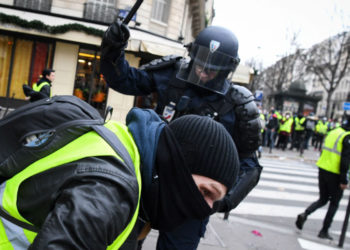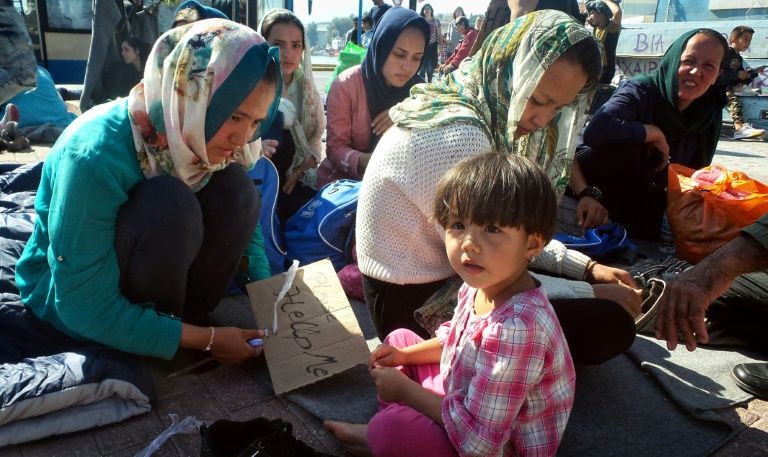Greek police fired tear gas at hundreds of children who protested in a packed migrant camp on the Greek island of Lesbos on Wednesday, the state news agency ANA reported.
Some 300 unaccompanied minors joined the protest at the overcrowded Moria camp, demanding to be transferred.
The young migrants set fire to rubbish bins before being dispersed by teargas.
Some asylum seekers have already been transferred from Moria to a new camp on the Greek mainland, but many complained that their living conditions have only worsened.
“We left Moria hoping for something better,” said Sazan, a 20-year-old Afghan, referring to the main camp on Lesbos.
“And in the end, it’s worse.”
Yesterday 13 boats arrived in #Lesbos with around 600 people onboard, many of them kids. We have not seen this since 2016. They will reportedly go to #Moria where there are now about 11,000 people in a center that has the capacity for just 3,000.
— MSF Sea (@MSF_Sea) August 30, 2019
‘Hell’
Sazan is one of around 1,000 Afghans ferried in from Lesbos – where conditions have become increasingly unsanitary and unsafe – to the mainland.
After six months of what he described as “hell” in Moria, Sazan said he had hoped for better.
But at the Nea Kavala camp near the major northern port city of Thessaloniki, new arrivals complain of lack of access to basics such as water and electricity, he said.
Staff at the camp are struggling to find enough tents and to put basic facilities in place.
There were currently only 200 tents for 1,000 people, a source at the citizen protection ministry told AFP. Other migrants ferried off Lesbos would be transferred to other camps, the source said.
The ministry had taken over responsiblity for migrants after new conservative Prime Minister Kyriakos Mitsotakis did away with the migration policy ministry after taking office in July.
But a summer surge in arrivals took the government by surprise, as migrants made the crossing to the Greek islands that sit in the Aegean Sea just miles from the Turkish mainland.
The U.N. High Commissioner for Refugees said the island of Lesbos was sheltering nearly 11,000 people at the end of August – four times the capacity of its camps.
Tougher Measures
“We thought Moria was the worse thing that could happen to us,” said Mohamed Nour, as he tried to settle his three children into a makeshift tent at the Nea Kavala camp.
“They told us it would only be a temporary stay, but we’ve been here for two days now and the conditions aren’t good,” the 28-year-old said.
The ministry has promised to transfer the migrants to other camps by the end of the month.
But 15-year-old Tamim said he has heard that before. He told AFP he had already been at Nea Kavala for three months.
“They told us the same thing when we arrived,” he said.
“It was better at Moria. At least we had English lessons. Here, we don’t have anything to do.”
In the meantime, staff at the camp have been scrambling to get extra tents and toilets installed for the new arrivals.
“We need more doctors and infrastructure to meet the needs of hundreds of children,” said one camp worker, 35-year-old Angelos.
Greece is currently home to more than 70,000 migrants and refugees across its territory.
Rights groups have denounced the response of the new government, which has tightened border controls and withdrawn the right for asylum seekers whose application is rejected to appeal the decision.
One migrant, at least, said he was glad to be off Lesbos. Korban, 19, arrived with his family on Tuesday from the overcrowded camp.
“At Moria, there was brawling and jostling every day,” he said. “It was hell. The only thing left for us to do now is to be patient and keep our hopes up.”


